Battery self-study
In the last article, I briefly described how to create a global knowledge base on batteries.
I am starting a new phase of research dedicated to the study of self-discharge of batteries during storage.
Batteries fully charged lasted 130 days. Then repeated testing was made.
POWEREX AA
ENELOOP PRO AA
ENELOOP AA
FUJITSU AA
DURACELL TURBO AA
ENELOOP LITE AA
FUJITSU AA (BLACK)
GP ReCyko + PRO AA
')
Several dozens of battery models are in storage. The test database will be replenished as the expiration of the storage period.
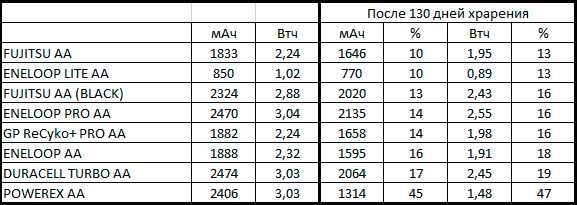
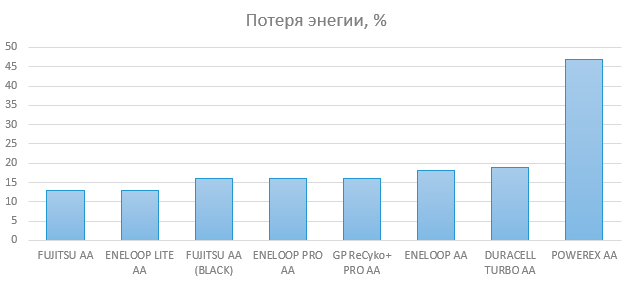
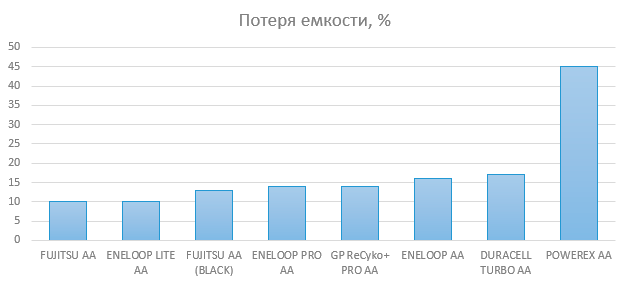
It is believed that the larger the battery capacity, the greater the self-discharge. Two conclusions follow from this statement:
The test results do not show a clear pattern between capacity (or energy) and self-discharge rate. Batteries with a large supply of energy, even after prolonged storage, are capable of delivering more energy.
Only POWEREX AA is knocked out of the picture. Probably POWEREX AA is basically not an LSD battery. The information on the “PRECHARGED READY TO USE” packaging may not be true.
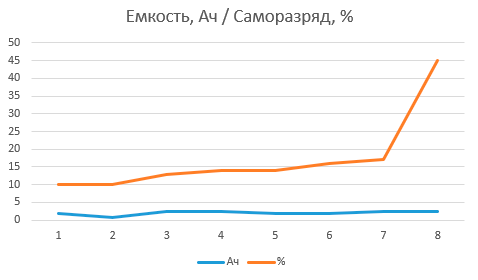
The same goes for internal resistance.
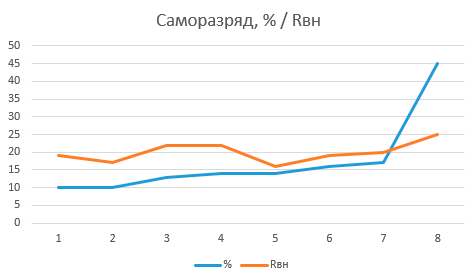
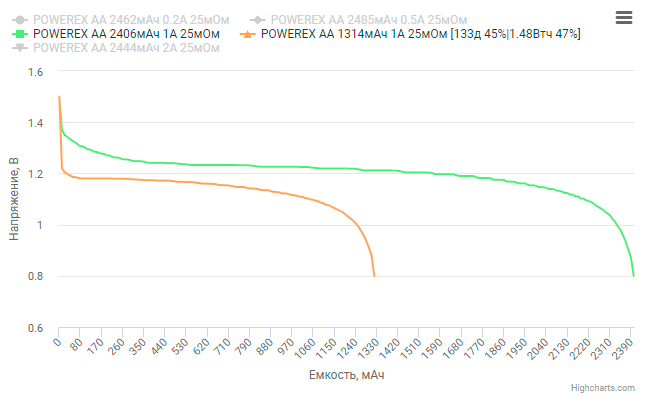
POWEREX AA 1314mAh 1A 25mOhm [133d 45% | 1.48Wh 47%]
1314mAh - residual capacity after storage
1A - discharge current
25mOhm - internal resistance
133d 45% - storage 133 days | capacity loss 45%
1.48Wh 47% - residual energy | after energy 47%
I am starting a new phase of research dedicated to the study of self-discharge of batteries during storage.
Batteries fully charged lasted 130 days. Then repeated testing was made.
Batteries involved in the test
POWEREX AA
ENELOOP PRO AA
ENELOOP AA
FUJITSU AA
DURACELL TURBO AA
ENELOOP LITE AA
FUJITSU AA (BLACK)
GP ReCyko + PRO AA
')
Several dozens of battery models are in storage. The test database will be replenished as the expiration of the storage period.
Measurement result



It is believed that the larger the battery capacity, the greater the self-discharge. Two conclusions follow from this statement:
- with a long operating interval, it is better to use batteries with a smaller capacity, but less self-discharge
- during long-term storage, the battery capacity with a larger and smaller capacity is equalized
The test results do not show a clear pattern between capacity (or energy) and self-discharge rate. Batteries with a large supply of energy, even after prolonged storage, are capable of delivering more energy.
Only POWEREX AA is knocked out of the picture. Probably POWEREX AA is basically not an LSD battery. The information on the “PRECHARGED READY TO USE” packaging may not be true.

The same goes for internal resistance.

How to read charts

POWEREX AA 1314mAh 1A 25mOhm [133d 45% | 1.48Wh 47%]
1314mAh - residual capacity after storage
1A - discharge current
25mOhm - internal resistance
133d 45% - storage 133 days | capacity loss 45%
1.48Wh 47% - residual energy | after energy 47%
Source: https://habr.com/ru/post/461613/
All Articles